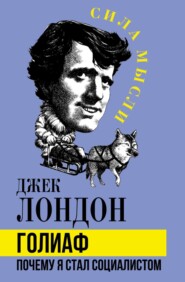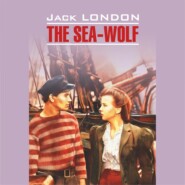По всем вопросам обращайтесь на: info@litportal.ru
(©) 2003-2025.
✖
Hearts of Three
Настройки чтения
Размер шрифта
Высота строк
Поля
“Cayenne pepper, eh – those damned, horrible, crazy-proud Solanos,” the breed skipper flashed at Francis with white teeth of laughter.
“Just bugs – clean crazy, nobody at home,” Francis laughed back, as he sprang to the rail to waft further kisses to the strange damsel.
Before the land wind, the Angelique made the outer rim of Chiriqui Lagoon and the Bull and Calf, some fifty miles farther along on the rim, by midnight, when the skipper hove to to wait for daylight. After breakfast, rowed by a Jamaica negro sailor in the skiff, Francis landed to reconnoiter on the Bull, which was the larger island and which the skipper had told him he might find occupied at that season of the year by turtle-catching Indians from the mainland.
And Francis very immediately found that he had traversed not merely thirty degrees of latitude from New York but thirty hundred years, or centuries for that matter, from the last word of civilisation to almost the first word of the primeval. Naked, except for breech-clouts of gunny-sacking, armed with cruelly heavy hacking blades of machetes, the turtle-catchers were swift in proving themselves arrant beggars and dangerous man-killers. The Bull belonged to them, they told him through the medium of his Jamaican sailor’s interpreting; but the Calf, which used to belong to them for the turtle season now was possessed by a madly impossible Gringo, whose reckless, dominating ways had won from them the respect of fear for a two-legged human creature who was more fearful than themselves.
While Francis, for a silver dollar, dispatched one of them with a message to the mysterious Gringo that he desired to call on him, the rest of them clustered about Francis’ skiff, whining for money, glowering upon him, and even impudently stealing his pipe, yet warm from his lips, which he had laid beside him in the sternsheets. Promptly he had laid a blow on the ear of the thief, and the next thief who seized it, and recovered the pipe. Machetes out and sun-glistening their clean-slicing menace, Francis covered and controlled the gang with an automatic pistol; and, while they drew apart in a group and whispered ominously, he made the discovery that his lone sailor-interpreter was a weak brother and received his returned messenger.
The negro went over to the turtle-catchers and talked with a friendliness and subservience, the tones of which Francis did not like. The messenger handed him his note, across which was scrawled in pencil:
“Vamos.”
“Guess I’ll have to go across myself,” Francis told the negro whom he had beckoned back to him.
“Better be very careful and utmostly cautious, sir,” the negro warned him. “These animals without reason are very problematically likely to act most unreasonably, sir.”
“Get into the boat and row me over,” Francis commanded shortly.
“No, sir, I regret much to say, sir,” was the black sailor’s answer. “I signed on, sir, as a sailor to Captain Trefethen, but I didn’t sign on for no suicide, and I can’t see my way to rowin’ you over, sir, to certain death. Best thing we can do is to get out of this hot place that’s certainly and without peradventure of a doubt goin’ to get hotter for us if we remain, sir.”
In huge disgust and scorn Francis pocketed his automatic, turned his back on the sacking-clad savages, and walked away through the palms. Where a great boulder of coral rock had been upthrust by some ancient restlessness of the earth, he came down to the beach. On the shore of the Calf, across the narrow channel, he made out a dinghy drawn up. Drawn up on his own side was a crank-looking and manifestly leaky dugout canoe. As he tilted the water out of it, he noticed that the turtle-catchers had followed and were peering at him from the edge of the coconuts, though his weak-hearted sailor was not in sight.
To paddle across the channel was a matter of moments, but scarcely was he on the beach of the Calf when further inhospitality greeted him on the part of a tall, barefooted young man, who stepped from behind a palm, automatic pistol in hand, and shouted:
“Vamos! Get out! Scut!”
“Ye gods and little fishes!” Francis grinned, half-humorously, half-seriously. “A fellow can’t move in these parts without having a gun shoved in his face. And everybody says get out pronto.”
“Nobody invited you,” the stranger retorted. “You’re intruding. Get off my island. I’ll give you half a minute.”
“I’m getting sore, friend,” Francis assured him truthfully, at the same time, out of the corner of his eye, measuring the distance to the nearest palm-trunk. “Everybody I meet around here is crazy and discourteous, and peevishly anxious to be rid of my presence, and they’ve just got me feeling that way myself. Besides, just because you tell me it’s your island is no proof – ”
The swift rush he made to the shelter of the palm left his sentence unfinished. His arrival behind the trunk was simultaneous with the arrival of a bullet that thudded into the other side of it.
“Now, just for that!” he called out, as he centered a bullet into the trunk of the other man’s palm.
The next few minutes they blazed away, or waited for calculated shots, and when Francis’ eighth and last had been fired, he was unpleasantly certain that he had counted only seven shots for the stranger. He cautiously exposed part of his sun-helmet, held in his hand, and had it perforated.
“What gun are you using?” he asked with cool politeness.
“Colt’s,” came the answer.
Francis stepped boldly into the open, saying: “Then you’re all out. I counted ‘em. Eight. Now we can talk.”
The stranger stepped out, and Francis could not help admiring the fine figure of him, despite the fact that a dirty pair of canvas pants, a cotton undershirt, and a floppy sombrero constituted his garmenting. Further, it seemed he had previously known him, though it did not enter his mind that he was looking at a replica of himself.
“Talk!” the stranger sneered, throwing down his pistol and drawing a knife. “Now we’ll just cut off your ears, and maybe scalp you.”
“Gee! You’re sweet-natured and gentle animals in this neck of the woods,” Francis retorted, his anger and disgust increasing. He drew his own hunting knife, brand new from the shop and shining. “Say, let’s wrestle, and cut out this ten-twenty-and-thirty knife stuff.”
“I want your ears,” the stranger answered pleasantly, as he slowly advanced.
“Sure. First down, and the man who wins the fall gets the other fellow’s ears.”
“Agreed.” The young man in the canvas trousers sheathed his knife.
“Too bad there isn’t a moving picture camera to film this,” Francis girded, sheathing his own knife. “I’m sore as a boil. I feel like a heap bad Injun. Watch out! I’m coming in a rush! Anyway and everyway for the first fall!”
Action and word went together, and his glorious rush ended ignominiously, for the stronger, apparently braced for the shock, yielded the instant their bodies met and fell over on his back, at the same time planting his foot in Francis’ abdomen and, from the back purchase on the ground, transforming Francis’ rush into a wild forward somersault.
The fall on the sand knocked most of Francis’ breath out of him, and the flying body of his foe, impacting on him, managed to do for what little breath was left him. As he lay speechless on his back, he observed the man on top of him gazing down at him with sudden curiosity.
“What d’ you want to wear a mustache for?” the stranger muttered.
“Go on and cut ‘em off,” Francis gasped, with the first of his returning breath. “The ears are yours, but the mustache is mine. It is not in the bond. Besides, that fall was straight jiu jiutsu.”
“You said ‘anyway and everyway for the first fall,’” the other quoted laughingly. “As for your ears, keep them. I never intended to cut them off, and now that I look at them closely the less I want them. Get up and get out of here. I’ve licked you. Vamos! And don’t come sneaking around here again! Git! Scut!”
In greater disgust than ever, to which was added the humiliation of defeat, Francis turned down to the beach toward his canoe.
“Say, Little Stranger, do you mind leaving your card?” the victor called after him.
“Visiting cards and cut-throating don’t go together,” Francis shot back across his shoulder, as he squatted in the canoe and dipped his paddle. “My name’s Morgan.”
Surprise and startlement were the stranger’s portion, as he opened his mouth to speak, then changed his mind and murmured to himself, “Same stock – no wonder we look alike.”
Still in the throes of disgust, Francis regained the shore of the Bull, sat down on the edge of the dugout, filled and lighted his pipe, and gloomily meditated. Crazy, everybody, was the run of his thought. Nobody acts with reason. “I’d like to see old Regan try to do business with these people. They’d get his ears.”
Could he have seen, at that moment, the young man of the canvas pants and of familiar appearance, he would have been certain that naught but lunacy resided in Latin America; for the young man in question, inside a grass-thatched hut in the heart of his island, grinning to himself as he uttered aloud, “I guess I put the fear of God into that particular member of the Morgan family,” had just begun to stare at a photographic reproduction of an oil painting on the wall of the original Sir Henry Morgan.
“Well, Old Pirate,” he continued grinning, “two of your latest descendants came pretty close to getting each other with automatics that would make your antediluvian horse-pistols look like thirty cents.”
He bent to a battered and worm-eaten sea-chest, lifted the lid that was monogramed with an “M,” and again addressed the portrait:
“Well, old pirate Welshman of an ancestor, all you’ve left me is the old duds and a face that looks like yours. And I guess, if I was really fired up, I could play your Port-au-Prince stunt about as well as you played it yourself.”
A moment later, beginning to dress himself in the age-worn and moth-eaten garments of the chest, he added: “Well, here’s the old duds on my back. Come, Mister Ancestor, down out of your frame, and dare to tell me a point of looks in which we differ.”
Clad in Sir Henry Morgan’s ancient habiliments, a cutlass strapped on around the middle and two flintlock pistols of huge and ponderous design thrust into his waist-scarf, the resemblance between the living man and the pictured semblance of the old buccaneer who had been long since resolved to dust, was striking.
“Back to back against the mainmast,
Held at bay the entire crew…”
As the young man, picking the strings of a guitar, began to sing the old buccaneer rouse, it seemed to him that the picture of his forebear faded into another picture and that he saw:
The old forebear himself, back to a mainmast, cutlass out and flashing, facing a semi-circle of fantastically clad sailor cutthroats, while behind him, on the opposite side of the mast, another similarly garbed and accoutred man, with cutlass flashing, faced the other semi-circle of cutthroats that completed the ring about the mast.

















